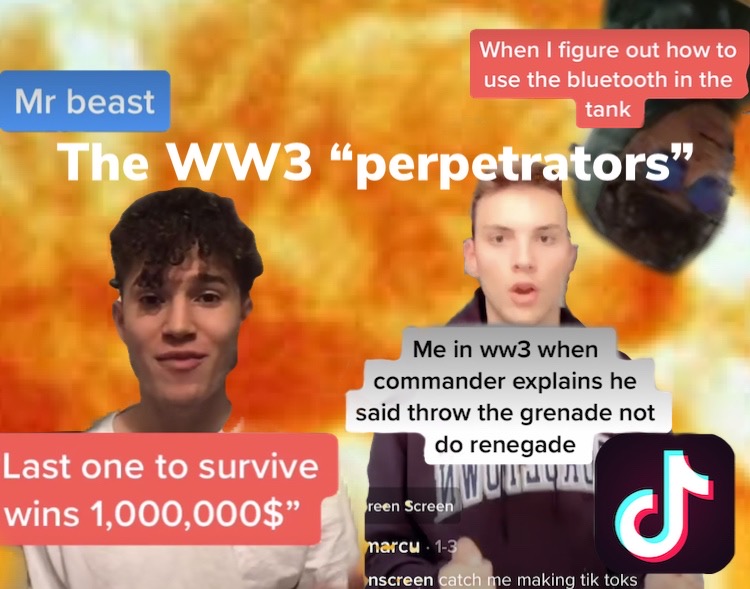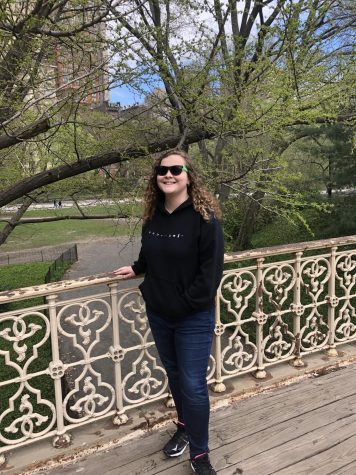Memes reduce anxiety about volatile political atmosphere
A digital cartoon that displays World World III memes created by TikTok users @jaymarcu, @liltexon, and @degopoop (from left to upper right).
February 5, 2020
A surge of fear swept over the nation when a U.S. airstrike killed Iranian Gen. Qasem Soleimani. Everyone wondered if his death signaled the start of this generation’s Vietnam: World War III. In order to cope with the prospect of serving on the front lines, Gen Z flooded social media with the hashtag #WW3.
Some view Gen Z as immature for starting the trend, but they miss the point. World War III memes aim to provide clever commentary and reduce stress about the tense political situation.
Gen Z makes witty remarks to express disinterest in World War III.
Twitter’s users tweeted comments like “all I know is that I will have an aux in the tank” and “me using Snapchat trying to find enemies during the war.”
Posts like these receive thousands of likes, proving that many Twitter users take more interest in their personal devices than fighting a war.
Humorous memes also lower anxiety about the current political climate. According to American psychiatrist William Fry, laughter and levity reduce the stress hormone cortisol. Thus, humor decreases stress and makes serious circumstances, like war, less anxiety-inducing.
Critics ridicule this generation’s creation of juvenile war memes. However, when Saturday Night Live or talk show hosts crack scandalous jokes about political issues, no one bats an eye. Thus, one has to wonder if these individuals are genuinely offended by the humor or if they simply dislike the concept of a meme.
In fact, quality memes should push comedic boundaries.
“There needs to be something wrong, unsettling, and threatening in some way [about a joke],” said Peter McGraw, a psychologist at the University of Colorado Boulder.
TikTokers and Twitter users did not start the #WW3 trend with ill-intent; they only wanted to voice their opinions about the tumultuous political climate. Critics argue that the memes lack maturity just because they are clever and funny.
Ultimately, society needs to lighten up about World War III memes.


